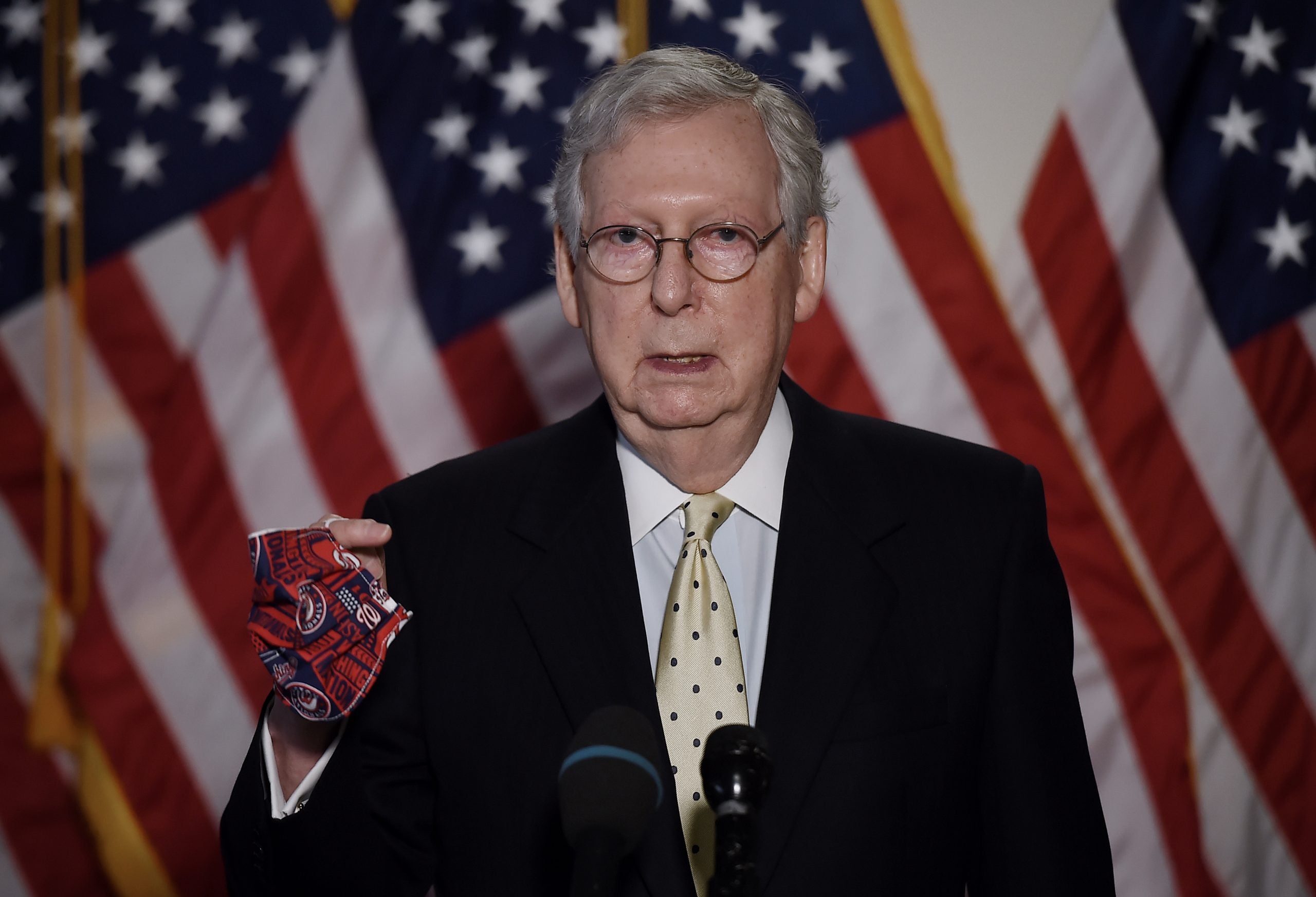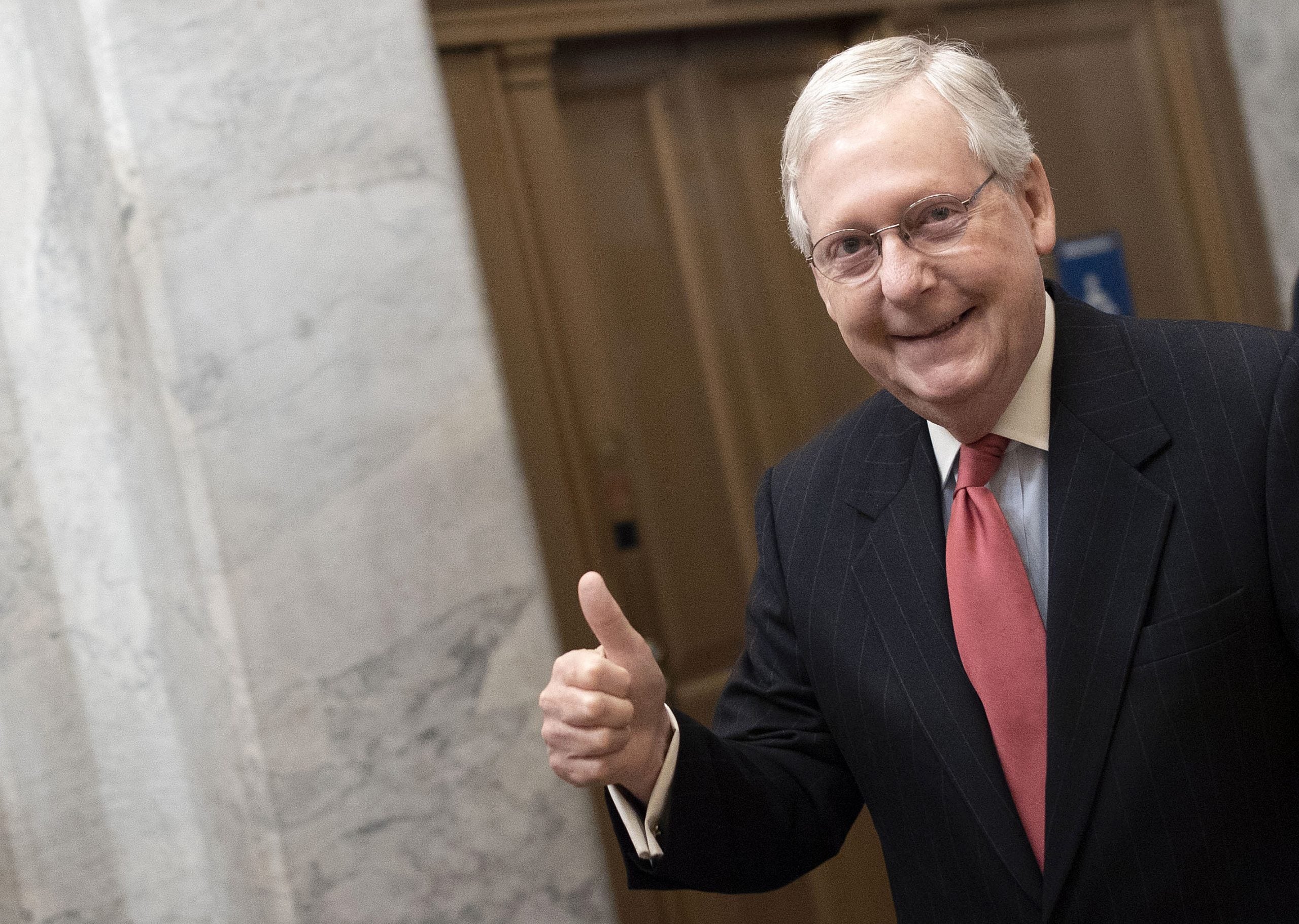
Weeks after House Democrats passed the HEROES Act in an effort to aid Americans who have been financially affected by the coronavirus-spurred economic turndown, Senate Majority Leader Mitch McConnell has finally agreed to another round of payments. On Tuesday, the Kentucky lawmaker said he envisioned direct checks, but remained unclear on who would qualify for the payout.
“The economy needs another shot of adrenaline,” McConnell told Fox News on Tuesday. “If we lose control of the virus…everything else will be window dressing.” According to HuffPost, a full-fledged GOP proposal is expected later this week.
McConnell’s acceptance of another round of payments comes at a critical moment in the pandemic. While cases in New York and New Jersey, once epicenters of the virus, appear to be on the decline, an NPR report shows that new daily cases are rising in 48 states. In the south, the numbers have been exacerbated by reopening plans that failed to take into account the health and safety of residents. Now many of those same states are being forced to close down the very businesses they opened ahead of the recommended timeframe.

Newly enforced closures have come with layoffs and rising unemployment numbers just as the $600 bonus for unemployment benefits is set to expire. Behind closed doors, there is rumored to be infighting among Republicans who can not agree on how to handle a number of the provisions laid out in previous packages that have nearly run their course. Senate GOP have said that the aid unemployed Americans now receive is too high. Instead of providing them with an economic boost, they want to “incentivize” them to seek jobs in a flailing job market.
The Republican bill is expected to cost $1 trillion which comes in at $2 trillion less than the “far more generous,” as Senate Minority Leader Chuck Schumer describes it, HEROES Act. That’s in part due to the canceling of unemployment benefits, but McConnell is also suggesting that only Americans who make $40,000 a year or less should reap the benefits of the direct payments. Democrats put that income cap at $75,000.
With general elections quickly approaching, the next bill’s ability to keep Americans afloat will likely be a determining factor at the polls.